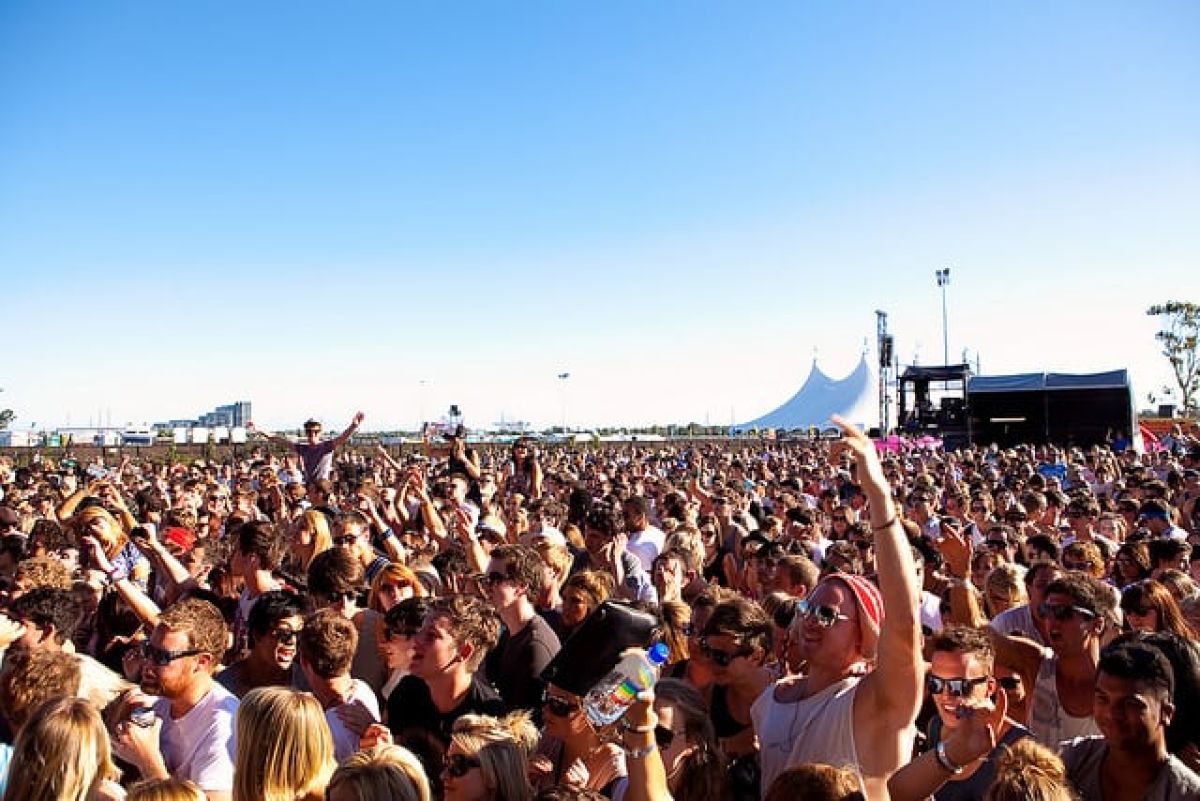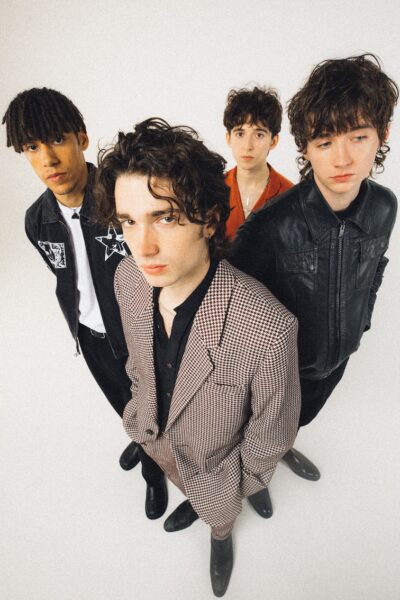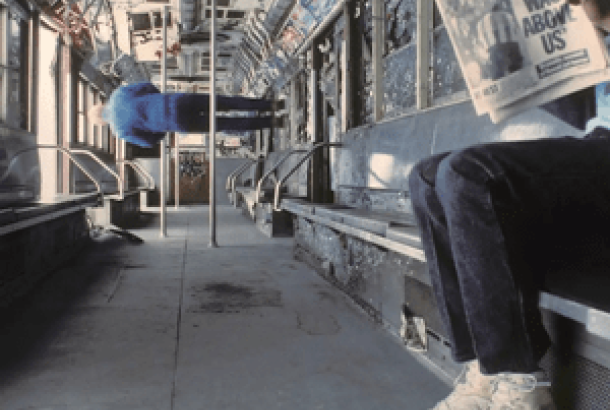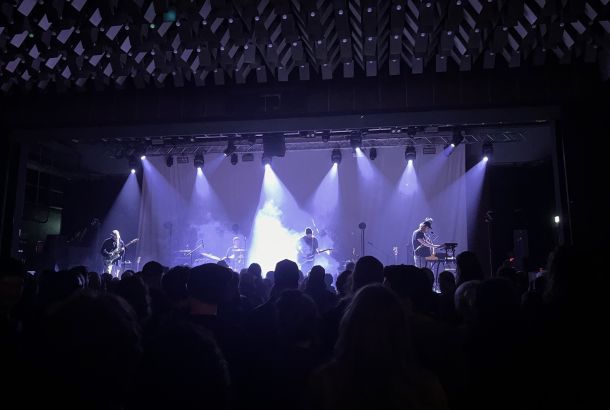Has Covid killed live music?

There’s no denying that the 2020 global lockdown affected life as we all know it. However, what is surprising is its detrimental effect on the music industry, especially on live music and artist perception. This can be closely linked to the Covid-catalysed boom of TikTok. The social media site did have some relevance pre-lockdown. Still, in a time of chronic boredom and government-ordained isolation, the video app really found its feet and people – teens in particular – turned to it to live life vicariously through people across the earth. This resulted in Gen Z’s very own ‘fandomania’.
Two years spent with nothing to do but devote oneself to hobbies and special interests caused a level of obsession with artists that created a group of adolescents whose sole mission in life was to know and love musicians. The 16 to 18-year-olds that emerged from lockdown hadn’t experienced gigs and live music like those before them. Enter stage left – the demise of concert etiquette and the influx of unhealthy parasocial relationships. The growth of TikTok created a vast distance between online life and reality, as teens spent more time alone with lyrics, albums, and Instagram accounts, seeing themselves as people who truly knew these artists instead of recipients of the art.
This change in audience behaviour has appeared most in the Indie Genre. Between Irish Indie-Rock band Inhaler and Indie-Pop singer Phoebe Bridgers, both artists’ fan interactions and gig experiences have shown the consequences of fandom growth and obsession. This is so much so that Phoebe Bridgers since stated that ‘‘There’s a higher chance you’ll meet a fan you hate than a fan you love; you’re way more likely to be confronted with someone who just violated your privacy.’’
This came in the wake of her father’s funeral in which thousands of ill-intentioned fans flooded her socials with comments sympathising with her loss, but also critiquing her new relationship. Regardless of the aim, the influx of unwanted opinion makes clear the ways that fans have changed post-pandemic; the twenty-four months of infinite free time has seemingly landed them with a sense of entitlement in which the artist/fan relationship can no longer be one-sided.

Whilst this rise in fan entitlement has caused awkward and unfriendly interactions with female performers, it has manifested in a completely different way with male ones. Grown men and adult musicians are no longer just that; they have been ‘babygirlified’. The ‘babygirlification’ trend has landed men with a fan-determined girliness. People like Harry Styles are often reduced to whatever it is about them that is stereotypically feminine and infantile, causing the fans’ parasocial need to protect to skyrocket and focus on things that were, most likely, irrelevant to them pre-lockdown.
Any potential artist relationships are greatly scrutinised, see Harry Styles and Taylor Russell, and anybody who dares to critique the singers becomes a target. They are exposed and attacked online with some cases leading to the extreme, e.g. doxing. This protectiveness has presented itself to the casual viewer as borderline mania and caused serious fans to consider opportunities for live music to be of grave importance. The chain from ‘babygirlification’ to overprotectiveness to obsession has made the gigs for artists like this extremely uncomfortable for the average fan and consumer, and more often than not, the experience is ruined.
For Inhaler, the lockdown was an opportunity to prosper, using the time away to build themselves as musicians and in turn create a solid and faithful fanbase. Unfortunately, said fanbase is not exactly known to be respectful, so much so that TikTok music account @brewtuness said about Inhaler ‘‘Remarkable music, unremarkable fanbase.’’

Their recent Blackpool Empress gig only added fuel to the fire. Hundreds of fans queued for over 12 hours in advance, sitting on the freezing seafront at 3 am, reportedly starting fights with others in the queue, leaving loads of rubbish on the street, and risking their health, all for an unreserved, unsold-out gig. What is the endgame for these fans?
Well, it seems like TikTok has led them to think that it’s not enough to just be interested in the band, instead you have to garner their attention; there’s no point just going to a gig and experiencing the music, you have to be first in the queue and you have to get barricade, and if you don’t get a video of the band member looking in your general direction then you’ve failed as a fan. There is now a vast difference between fans of the music and fans of the men, as going to their gigs has almost become a competition of who can and who can’t get their attention.
But what does this have to do with lockdown? People have been obsessed with bands since the beginning of time – take Beatlemania, for example. However, this new generation of concert-goers happens to have missed something imperative during isolation – the Golden Unspoken Rules of concert etiquette. Throughout the history of music, there has always been a set of unspoken rules, learned by every regular concert-goer. For example, not distracting artists, not throwing things on stage, and being aware and conscious of the people around you. But these rulings seem to have vanished amongst the younger generation.
People have started to forget that those alongside them are not their competitors or rivals. Whether it be stepping on people who have fainted, ignoring venue rules or, the most damming of all: throwing things on stage, TikTok and lockdown have generated an era of fandom in which artists are no longer seen as actual people. With audiences launching things like phones, wheels of brie, and literal ash-filled urns on stage, the victim pool of these acts has gone beyond the indie fanbase, with pop and country stars like Bebe Rexha and Kelsea Ballerini both hit in the face by flying objects at their concerts.
With more and more artists rightly condemning these acts, the question now is, where do we go from here? One thing is clear: if live music and gigs are to continue, audience behaviour needs to change, and the parasocial relationships between artists and fans must become wholly one-sided again.







